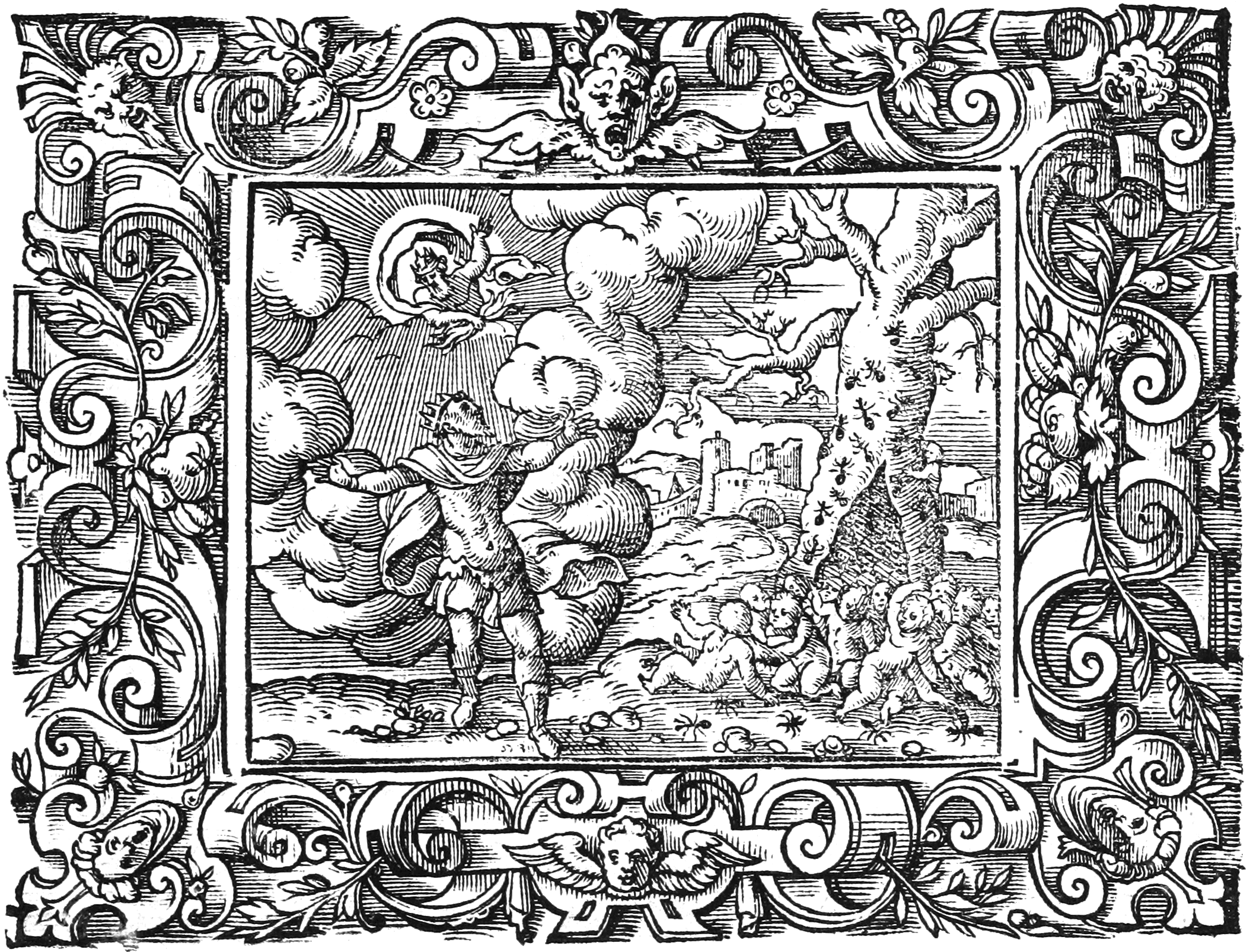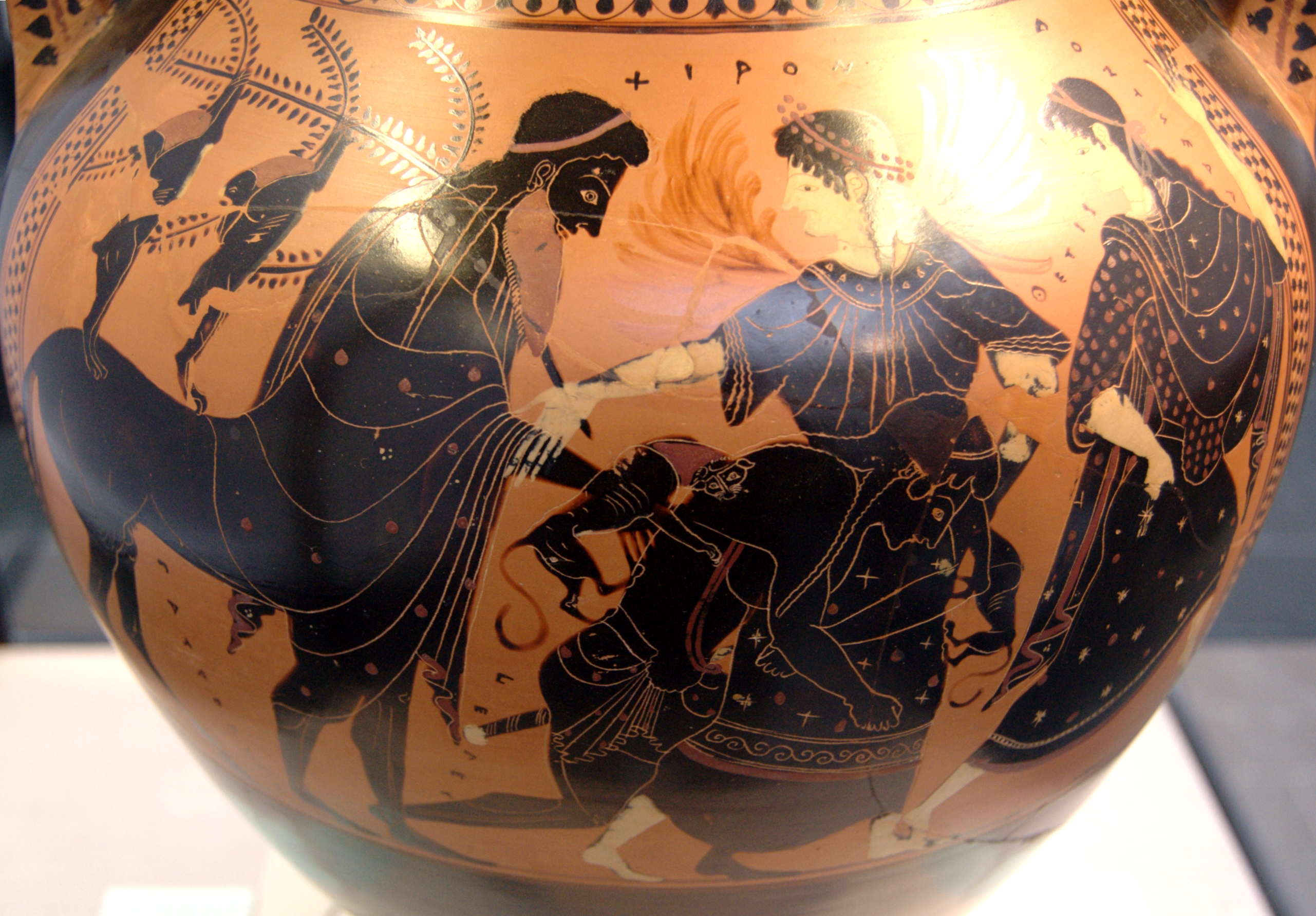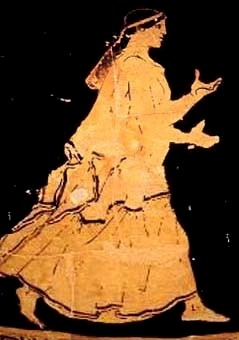|
Endeïs
In Greek mythology, Queen Endeïs (; Ancient Greek: Ενδηίς or Ενδαΐς) was the wife of King Aeacus and mother of the heroes Telamon and Peleus (since Peleus was the father of Achilles, Endeïs was Achilles's grandmother). The name is a dialect variant of Engaios (''Ἐγγαῖος'', "in the earth"). Family Endeïs was either the daughter of Chiron and the nymph Chariclo; the daughter of Pandion of Athens; or the daughter of the Megarian warlord Sciron. In some versions, Endeïs's father, Sciron, married her to Aeacus after he declared Sciron the military leader of Megara. Mythology Endeïs hated her stepson Phocus, Aeacus's son by the Nereid Psamathe, and wished he were dead. It is also thought that Telamon and Peleus were jealous of Phocus because he excelled at athletic sports. In either case they drew lots and Telamon was chosen to murder Phocus, his half brother. This was done in a ruse at the pentathlon A pentathlon is a contest featuring five events ... [...More Info...] [...Related Items...] OR: [Wikipedia] [Google] [Baidu] |
Aeacus
Aeacus (; also spelled Eacus; Ancient Greek: Αἰακός) was a mythological king of the island of Aegina in the Saronic Gulf. He was a son of Zeus and the nymph Aegina, and the father of the heroes Peleus and Telamon. According to legend, he was famous for his justice, and after he died he became one of the three judges in Hades alongside Minos and Rhadamanthos. In another story, he assisted Poseidon and Apollo in building the walls of Troy. He had sanctuaries in Athens and Aegina, and the Aeginetan festival of the Aeacea (Αἰάκεια) was celebrated in his honour. Family Aeacus was the son of Zeus by Aegina, a daughter of the river-god Asopus, and thus, brother of Damocrateia. In some accounts, his mother was Europa and thus possible brother to Minos, Rhadamanthus and Sarpedon. He was the father of Peleus, Telamon and Phocus and was the grandfather of the Trojan war warriors Achilles and Telemonian Ajax. In some accounts, Aeacus had a daughter called Alcima ... [...More Info...] [...Related Items...] OR: [Wikipedia] [Google] [Baidu] |
Chiron
In Greek mythology, Chiron ( ; also Cheiron or Kheiron; ) was held to be the superlative centaur amongst his brethren since he was called the "wisest and justest of all the centaurs". Biography Chiron was notable throughout Greek mythology for his youth-nurturing nature. His personal skills tend to match those of his foster father Apollo, who taught the young centaur the art of medicine, herbs, music, archery, hunting, gymnastics and prophecy, and made him rise above his beastly nature. Chiron was known for his knowledge and skill with medicine, and thus was credited with the discovery of botany and pharmacy, the science of herbs and medicine. Pliny the Elder, '' Naturalis Historia'7.56.3/ref> Like satyrs, centaurs were notorious for being wild, lusty, overly indulgent drinkers and carousers, violent when intoxicated, and generally uncultured delinquents. Chiron, by contrast, was intelligent, civilized and kind, because he was not related directly to the other centaurs du ... [...More Info...] [...Related Items...] OR: [Wikipedia] [Google] [Baidu] |
Sciron
In Greek mythology, Sciron, also Sceiron, Skeirôn and Scyron, ( grc, Σκίρων; gen.: Σκίρωνoς) was one of the malefactors killed by Theseus on the way from Troezen to Athens. He was a famous Corinthian bandit who haunted the frontier between Attica and Megaris. Family Sciron was the son of either Pelops Apollodorus, Epitome 1.2 and possibly Hippodameia, or Poseidon and Iphimedeia. Other sources makes his parents as Canethus and Henioche, a daughter of Pittheus which made him a cousin of Theseus. Sciron was also called the son of Pylas, king of Megara and thus great-grandson of Lelex. Pausanias, 1.39.6 Sciron was the father of EndeisApollodorus, 3.12.6 by the daughter of Pandion or Chariclo, daughter of Cychreus.Plutarch, ''Theseus'10.3/ref> Through his daughter Endeis, Sciron was thus the grandfather of the heroes Telamon and Peleus. A son of Sciron named Alycus, in the army of the Dioscuri was also said to be slain by Theseus when the latter kidnapped the you ... [...More Info...] [...Related Items...] OR: [Wikipedia] [Google] [Baidu] |
Chariclo
Chariclo ( or ; grc, Χαρικλώ, Khariklṓ, graceful spinner) is either of two nymphs in Greek mythology: * Chariclo, a nymph who was married the centaur Chiron and became the mother of Hippe, Endeïs, Ocyrhoe, and Carystus. In some accounts, she was described as the daughter of Apollo, Perses or Oceanus. Chariclo together with her mother-in-law Philyra the Oceanid In Greek mythology, the Oceanids or Oceanides (; grc, Ὠκεανίδες, Ōkeanídes, pl. of grc, Ὠκεανίς, Ōkeanís, label=none) are the nymphs who were the three thousand (a number interpreted as meaning "innumerable") daughters o ..., were the nurses of the young Achilles. * Chariclo, a nymph devotee of Athena, who became pregnant by a shepherd, Everes, giving birth to the prophet Tiresias. Tiresias was struck blind by Athena after seeing her naked. Chariclo begged Athena to give Tiresias his sight back, but the goddess could not undo her curse. She gave him the gift of prophecy inst ... [...More Info...] [...Related Items...] OR: [Wikipedia] [Google] [Baidu] |
Telamon
In Greek mythology, Telamon (; Ancient Greek: Τελαμών, ''Telamōn'' means "broad strap") was the son of King Aeacus of Aegina, and Endeïs, a mountain nymph. The elder brother of Peleus, Telamon sailed alongside Jason as one of his Argonauts, and was present at the hunt for the Calydonian Boar. In the ''Iliad'', he was the father of Greek heroes Ajax the Great and Teucer by different mothers. Some accounts mention a third son of his, Trambelus. He and Peleus were also close friends of Heracles, assisting him on his expeditions against the Amazons and his assault on Troy (see below). In an earlier account recorded by Pherecydes of Athens, Telamon and Peleus were not brothers, but friends. This would accord with Peleus being the father of the hero Achilles (Homer called him ''Pelides'' – i.e. son of Peleus). According to this account, Telamon was the son of Actaeus and Glauce, with the latter being the daughter of Cychreus, king of Salamis; and Telamon married ... [...More Info...] [...Related Items...] OR: [Wikipedia] [Google] [Baidu] |
Peleus
In Greek mythology, Peleus (; Ancient Greek: Πηλεύς ''Pēleus'') was a hero, king of Phthia, husband of Thetis and the father of their son Achilles. This myth was already known to the hearers of Homer in the late 8th century BC. Biography Peleus was the son of Aeacus, king of the island of Aegina, and Endeïs, the oread of Mount Pelion in Thessaly. He married the sea-nymph Thetis with whom he fathered Achilles. Peleus and his brother Telamon were friends of Heracles, and served in Heracles' expedition against the Amazons, his war against King Laomedon, and his quest for the Golden Fleece alongside Jason and the Argonauts. Though there were no further kings in Aegina, the kings of Epirus claimed descent from Peleus in the historic period. Mythology Peleus and his brother Telamon killed their half-brother Phocus, perhaps in a hunting accident and certainly in an unthinking moment, and fled Aegina to escape punishment. In Phthia, Peleus was purified by the c ... [...More Info...] [...Related Items...] OR: [Wikipedia] [Google] [Baidu] |
Phocus Of Aegina
In Greek mythology, Phocus (; Ancient Greek: Φῶκος means "seal"), was a prince of Aegina and son of Aeacus and Psamathe. Mythology Phocus' mother Psamathe, the Nereid goddess of sand beaches, transformed herself into a seal when she was ambushed by Aeacus, and was raped as a seal; conceived in the rape, Phocus' name means "seal". Apollodorus, 3.12.6 According to Pindar, Psamathe gave birth to Phocus on the seashore. By Asteria or Asterodia, Phocus had twin sons, Crisus and Panopeus. Aeacus favored Phocus over Peleus and Telamon, his two sons with Endeïs. The '' Bibliotheca'' characterizes Phocus as a strong athlete, whose athletic ability caused his half-brothers to grow jealous. Their jealousy drove them to murder him during sport practice; Telamon, the stronger half-brother, threw a discus at Phocus' head, killing him. The brothers hid the corpse in a thicket, but Aeacus discovered the body and punished Peleus and Telamon by exiling them from Aegina. Telamon was ... [...More Info...] [...Related Items...] OR: [Wikipedia] [Google] [Baidu] |
Megara
Megara (; el, Μέγαρα, ) is a historic town and a municipality in West Attica, Greece. It lies in the northern section of the Isthmus of Corinth opposite the island of Salamis, which belonged to Megara in archaic times, before being taken by Athens. Megara was one of the four districts of Attica, embodied in the four mythic sons of King Pandion II, of whom Nisos was the ruler of Megara. Megara was also a trade port, its people using their ships and wealth as a way to gain leverage on armies of neighboring poleis. Megara specialized in the exportation of wool and other animal products including livestock such as horses. It possessed two harbors, Pagae to the west on the Corinthian Gulf, and Nisaea to the east on the Saronic Gulf of the Aegean Sea. It is part of Athens metropolitan area. Early history According to Pausanias, the Megarians said that their town owed its origin to Car, the son of Phoroneus, who built the citadel called 'Caria' and the temples of Dem ... [...More Info...] [...Related Items...] OR: [Wikipedia] [Google] [Baidu] |
Pentathlon
A pentathlon is a contest featuring five events. The name is derived from Greek: combining the words ''pente'' (five) and -''athlon'' (competition) ( gr, πένταθλον). The first pentathlon was documented in Ancient Greece and was part of the Ancient Olympic Games. Five events were contested over one day for the Ancient Olympic pentathlon, starting with the long jump, javelin throwing, and discus throwing, followed by the '' stadion'' (a short foot race) and wrestling. Pentathletes were considered to be among the most skilled athletes, and their training was often part of military service—each of the five events in the pentathlon was thought to be useful in war or battle. With the revival of the Olympic Games in the modern era, the pentathlon returned in two formats. The athletics pentathlon was a modern variation on the original events, with a competition over five track and field events. The modern pentathlon, invented by Pierre de Coubertin (father of the Modern Olympic ... [...More Info...] [...Related Items...] OR: [Wikipedia] [Google] [Baidu] |
Pausanias (geographer)
Pausanias ( /pɔːˈseɪniəs/; grc-gre, Παυσανίας; c. 110 – c. 180) was a Greek traveler and geographer of the second century AD. He is famous for his ''Description of Greece'' (, ), a lengthy work that describes ancient Greece from his firsthand observations. ''Description of Greece'' provides crucial information for making links between classical literature and modern archaeology. Biography Not much is known about Pausanias apart from what historians can piece together from his own writing. However, it is mostly certain that he was born c. 110 AD into a Greek family and was probably a native of Lydia in Asia Minor. From c. 150 until his death in 180, Pausanias travelled through the mainland of Greece, writing about various monuments, sacred spaces, and significant geographical sites along the way. In writing ''Description of Greece'', Pausanias sought to put together a lasting written account of "all things Greek", or ''panta ta hellenika''. Living in th ... [...More Info...] [...Related Items...] OR: [Wikipedia] [Google] [Baidu] |
Psamathe (Nereid)
In Greek mythology, Psamathe ( grc, Ψαμάθη) is a Nereid, one of the fifty daughters of the sea god Nereus and the Oceanid Doris. By Aeacus, the king of Aegina, she is the mother of a son, Phocus. When Phocus is killed by his half-brothers Peleus and Telamon, Psamathe sends a giant wolf at Peleus' herd. Family Psamathe is one of the fifty Nereids, daughters of Nereus and Doris. By Aeacus, the king of Aegina, she is the mother of a son, Phocus. She is later the wife of Proteus, king of Egypt, by whom she has a son, Theoclymenos, and a daughter, Eido (later known as Theonoe). Mythology There are two myths which involve Psamathe. The first is the story of her violation by Aeacus. Upon his advances, she transforms herself into a seal in an attempt to escape. She is unsuccessful, however, and from their union is born Phocus, whose name (''phoke'' meaning "seal") recalls his mother's metamorphosis. Peleus and Telamon are the sons of Aeacus by his wife Endeis. The tw ... [...More Info...] [...Related Items...] OR: [Wikipedia] [Google] [Baidu] |
Greek Mythology
A major branch of classical mythology, Greek mythology is the body of myths originally told by the ancient Greeks, and a genre of Ancient Greek folklore. These stories concern the origin and nature of the world, the lives and activities of deities, heroes, and mythological creatures, and the origins and significance of the ancient Greeks' own cult and ritual practices. Modern scholars study the myths to shed light on the religious and political institutions of ancient Greece, and to better understand the nature of myth-making itself. The Greek myths were initially propagated in an oral-poetic tradition most likely by Minoan and Mycenaean singers starting in the 18th century BC; eventually the myths of the heroes of the Trojan War and its aftermath became part of the oral tradition of Homer's epic poems, the '' Iliad'' and the '' Odyssey''. Two poems by Homer's near contemporary Hesiod, the '' Theogony'' and the '' Works and Days'', contain accounts of the genes ... [...More Info...] [...Related Items...] OR: [Wikipedia] [Google] [Baidu] |





